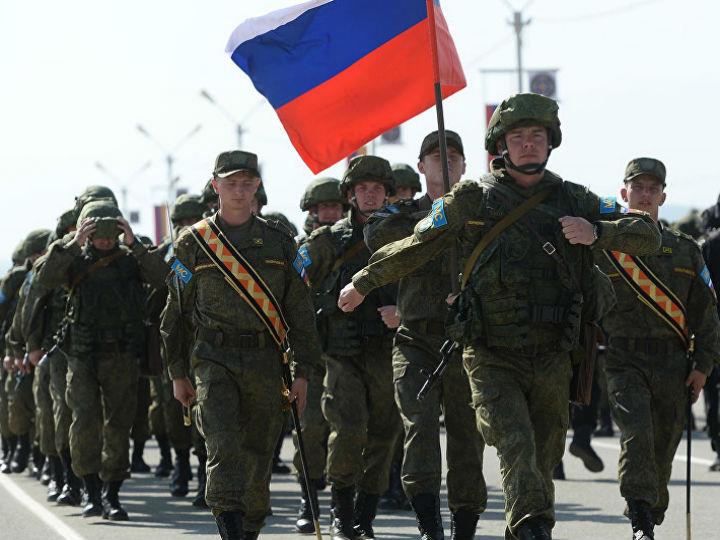by Judy Dempsey*
It is impossible to miss. It is a small black plaque at the entrance to Reichenbach im Vogtland’s elegant town hall. Engraved are three short paragraphs.
The first is about how the Jews were rounded up at the town hall. They subsequently died in a subcamp of the Flossenburg concentration camp. The second describes how, in April 1945, the Americans occupied Reichenbach, a pretty town in Saxony, southeastern Germany.
The Nazi era ended. The third paragraph explains how the U.S. army passed control of the town to the Red Army. The latter deported 120 youths between fifteen and sixteen years old to Siberia. Many died there. Those who were eventually allowed home returned very ill.
The plaque encapsulates what this town and many others went through during the closing stages of Nazism: defeat, liberation, and, in the case of eastern Germany, occupation.
In this part of the divided Germany, the Soviet occupation lasted until 1990. Since then, the town’s population has shrunk from 35,000 to just 20,000. Young people have left.
The old industry has disappeared. Some fine merchant buildings and town houses are empty or in disrepair. The church is closed for renovation. The local authorities are doing what they can to encourage tourism and put Reichenbach and its environs on the map.
At first glance, you wouldn’t think Russia’s war in Ukraine has affected the town. There are no signs of Ukrainian flags.
But the town’s council has gone out of its way to welcome refugees. Its website explains how the war has shaken people. How with their own eyes they can see what is happening to a country so close to Reichenbach.
The council is doing what it can to arrange housing, schooling, language classes, and jobs for the refugees. These efforts are replicated throughout most of Germany.
There is a wider political dimension to those efforts. Since the war in Ukraine began, the political elites’ but also the public’s perception of Russia has undergone such changes that it is hard to see Berlin returning to the status quo ante when and if this war ends.
The changes are complex and long overdue. They are about how Germany, shaken by Russia’s attack on Ukraine tore up the post–1945—indeed, the post–1990 order—has been forced to revise its foreign policy and its approach to Russia. The infatuation with Moscow is over.
German foreign policy was like a triangle. One side was for NATO and the American security umbrella, which Germany could rely upon without making too much effort to invest in its own safety. The second was for the EU, which gave Germany an economic and political anchor. And the third was for Russia, which influenced the other two sides of the triangle.
Russia was a crucial factor affecting German foreign policy. It wasn’t just about the (West) German government breaking ranks with Washington back in the 1970s by financing a Russian gas pipeline and agreeing to buy gas from the Kremlin.
It wasn’t just about the complex and turbulent relationship between Berlin and Moscow over the centuries.
It was the fact that the combination of these factors, plus the influence of industry and other lobbies, prevented the German political elites from considering the countries of Eastern Europe in their own right.
When Armenia, Belarus, Georgia, Moldova, and Ukraine gained their independence after the breakup of the Soviet Union in 1991, Berlin, consciously or not, looked at these newly independent and sovereign countries through the prism of Russia. It’s as if these states were still in Russia’s sphere of influence. So the rationale was: it’s best not to rock the boat by openly supporting those movements in the region that eventually want to join the EU and/or NATO. That would upset Russia.
This blinkered view of post–1989 shaped Germany’s policy toward NATO, toward the EU, and toward Russia—all at the expense of Eastern Europe. The NATO Bucharest summit reflected this German outlook. Berlin bowed to Moscow.
This triangle of interests is changing. The war in Ukraine shows just how NATO has adapted and how Berlin recognizes that it has to pay for its security, through NATO and at home by modernizing its depleted armed forces. This is about taking hard power and security seriously.
The EU is changing, too. It’s not going to be a defense player or a hard-power organization. The structures and different interests of the member states prevent this. What it can do—and Germany must intellectually help achieve this—is take steps toward making the continent “whole and free.” There is still too much unfinished business from the immediate post–1989 era. Completing it means completing Eastern Europe’s transformation, however difficult that may be.
That brings us to the third element of the triangle—Russia. With its war changing Germany’s perception of Moscow, the triangle in its old form is redundant.
Here’s the chance for Berlin to make Eastern Europe the third side of a new triangle.
*A nonresident senior fellow at Carnegie Europe and editor in chief of Strategic Europe.
** first published in carnegieeurope.eu




 By: N. Peter Kramer
By: N. Peter Kramer
